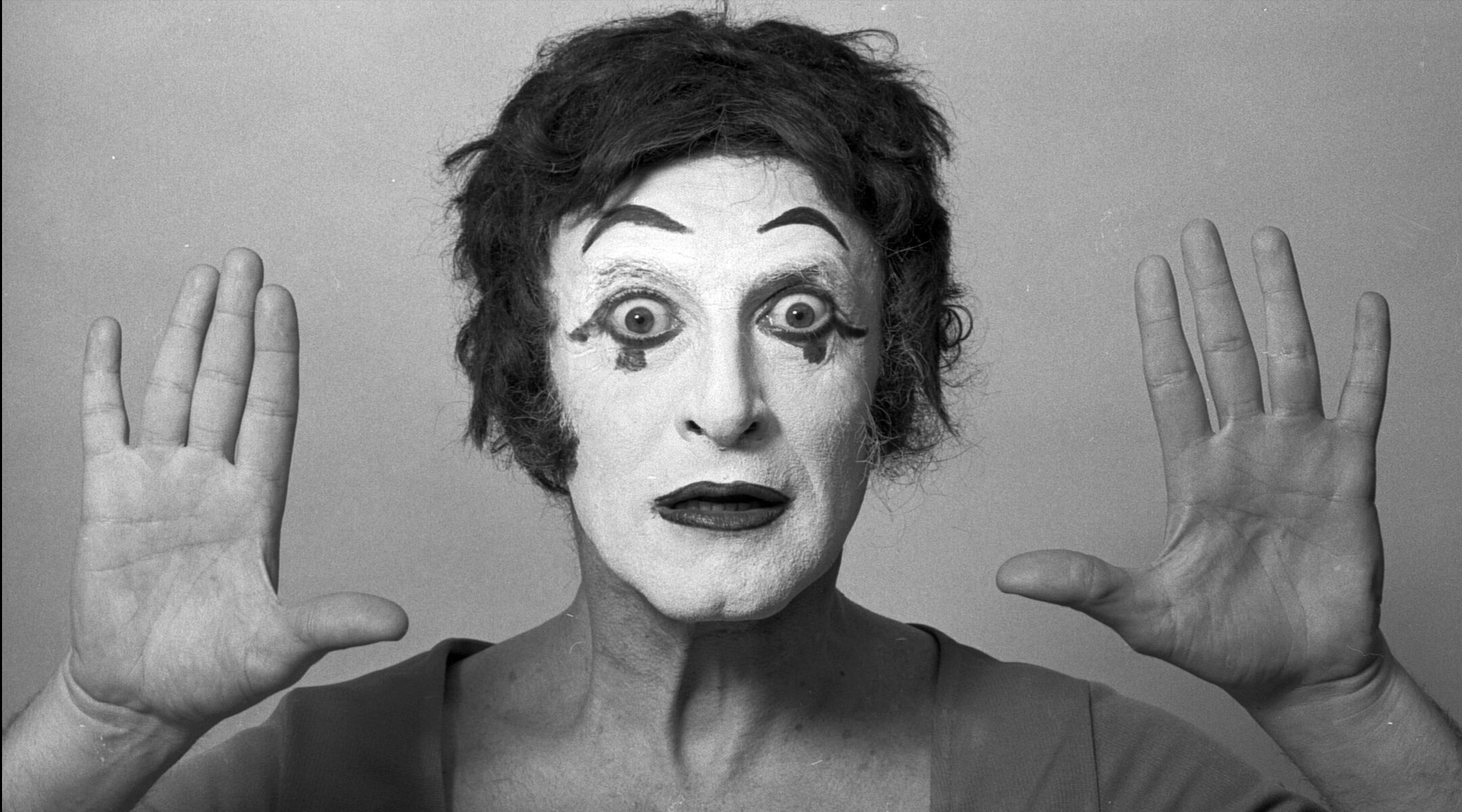PARIS (JTA) – When the French Jewish Resistance decided in 1944 to evacuate Jewish children hidden in an orphanage west of Paris, Resistance commander George Loinger called on Marcel Mangel.
Mangel, Loinger’s younger cousin, helped sneak the kids out of the Parisian suburb of Sevres to Annemasse, on the Swiss border.
The episode represented one of Mangel’s finest hours, but it was not what would make him world famous. After the war, Mangel changed his name to Marcel Marceau—after a general in Napolean’s army who hailed from the Alsace region—and became a world-renowned mime artist.
Marceau died in Paris on Saturday at the age of 84.
“The kids loved Marcel and felt safe with him,” said Loinger, now 97. “He had already begun doing performances in the orphanage, where he had met a mime instructor earlier on. The kids had to appear like they were simply going on vacation to a home near the Swiss border, and Marcel really put them at ease.”
Marceau later joined the Free French Forces of Charles de Gaulle, in a unit led by Gen. Lattre de Tassigny. In one confrontation, Marceau orchestrated the surrender of 30 German soldiers and an officer, when they ran into Marceau’s unit in a German field.
In 1947, Marceau created the beloved character of Bip the clown, who always wore a striped pullover and battered silk hat reminiscent of Charlie Chaplin’s Little Tramp.
Marceau, whom the L.A. Times once called “an icon of Western culture,” had a lasting influence on French popular culture and the art of pantomime the world over. He became well known in the United States, where he frequently performed, and even in Israel.
Marceau was born in Strasburg, France, where his father ran a kosher butcher shop. When the Nazis took over, Marceau’s father, Charles Mangel, ignored warnings about death camps and deportations, and when the Vichy police came to arrest him he was unprepared, according to Loinger. Mangel was deported to Auschwitz, where he was killed.
Loinger says his cousin always expressed the pain of the world in his art.
“You see the pain and the sadness in his mime skits,” Loinger said. “The origin of that pain was his father’s deportation.”
Marceau was never very active in Jewish organizational causes after the war, according to Loinger, but as a mime he continued visiting Jewish children’s homes.
“Marcel came several times to perform for the kids in the home,” recalled Philip Kauffmann, 87, a member of the Resistance from the Jewish Scouts movement. Kauffmann founded a home after the war in Jouy-en-Joisas, near Paris, where 120 Jewish orphans lived. “It was the beginning of his career. He came because it was a home for Jewish kids. He wanted to make them happy after the pain of losing their parents in the deportations.”
In 1996, he founded the Marceau Foundation with the goal of “promoting, fostering and encouraging the art of mime and mime-drama in the United States and abroad.”
Marceau’s funeral was held Wednesday in the Pere Lachaise cemetery. The religious ceremony was presided over by France’s chief rabbi, René Sirat.
JTA has documented Jewish history in real-time for over a century. Keep our journalism strong by joining us in supporting independent, award-winning reporting.






